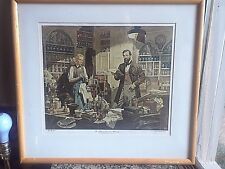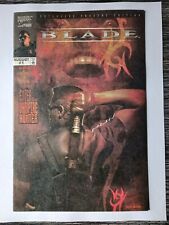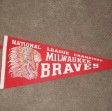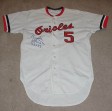When you click on links to various merchants on this site and make a purchase, this can result in this site earning a commission. Affiliate programs and affiliations include, but are not limited to, the eBay Partner Network.
Up for sale a RARE! "Father of Cytology" Karl Sax Hand Signed 3.25X6..5 B&W Photo.
ES-1886
Karl Sax (November
2, 1892 – October 8, 1973) was an American botanist and geneticist, noted for his research
in cytogenetics and the
effect of radiation on chromosomes. Sax was born in Spokane, Washington in
1892. His parents were pioneer farmers and active in civic affairs; his father
was the mayor of Colville, Washington.
Sax's early education was in the Colville schools, and in 1912 he continued his
studies at Washington State College.
He majored in agriculture, and his subsequent decision
to undertake graduate work was influenced by the botanist and plant
breeder Edward Gaines. In college,
he met and married Hally Jolivette, his cytology teacher, and they later had three sons.
Following his graduation, Hally accepted a position at Wellesley College in Wellesley, Massachusetts,
and they moved to the East Coast in 1916. Sax enrolled in the doctoral program
at the Bussey Institution Graduate
School of Applied Biology at Harvard University in Cambridge, Massachusetts and
completed his MA in 1917. He went
on to do his doctoral work at Harvard University,
receiving his D.Sc. in 1922. He served as a private in the US Army from 1917 to 1918 in World War I. In 1918, Sax took a job as an instructor in the
Department of Genetics at the University of California,
Berkeley, where he worked with E. B. Babcock on the genetics of the genus Crepis. In 1920 he took an appointment at the Riverbank
Laboratories in Geneva, Illinois working
on wheat genetics, but he moved on from that job soon after when he took a
position at the Maine Agricultural Experiment
Station in Orono, Maine. In 1928 he left Orono to take a teaching
position in Harvard's genetics department at the Bussey Institution. However,
the department was dissolved before his arrival, and he transferred to the
cytology department at the University's Biological Laboratories in Cambridge,
Massachusetts. In 1938 Sax published a paper entitled "Chromosome
Aberrations Induced by X-rays," which demonstrated that radiation could
induce major genetic changes by affecting chromosomal translocations,
a chromosome abnormality.
The paper is thought to mark the beginning of the field of radiation cytology,
and led him to be called the "father of radiation cytology."










